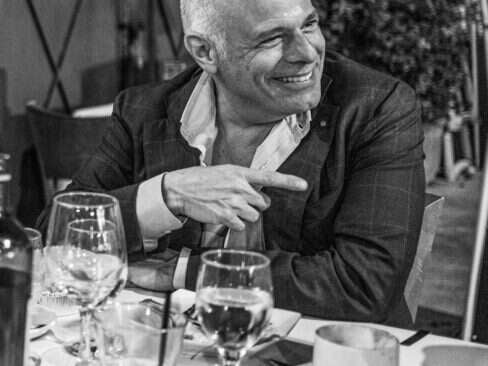
PresidentBoeing Business Jets
Steven J. Hill has led Boeing Business Jets, a joint venture established in July 1996 by The Boeing Company and General Electric Co., since 2004. He served as deputy vice president of Boeing Aircraft Trading and also spent four years as vice president Operations for Boeing Business Jets.
He began his Boeing career in 1974 as an aeronautical engineer for Boeing Defense and Space Group and earned a bachelor’s degree in 1973 followed by a master’s degree in 1974 from the University of Colorado in aeronautical engineering.
We caught up with him at the annual NBAA convention and asked him about the situation with large-airframe private aviation as well as his insights into the industry in general.
ET: What led you into the aviation business?
Steven Hill: I have a masters’ degree in aerodynamics. Coming out of college, which was the University of Colorado in Boulder, The Boeing Company offered me a job. I went straight into the flight test organization. I was a true engineer. My very first program was when we took the 707 and we were making it into the AWACS airplane. And I was doing stability and control flight test—taking data and analyzing it and selling it to the Air Force. I moved right through the engineering ranks and made a natural progression, if you will, into flight ops engineering. Flight ops engineering at Boeing is this unique group that deals firsthand with pilots. We train pilots on how to fly with the new digital technology. You take engineers and you start introducing them to customers through the pilot community. That lead to more work directly with customers: commercial airlines.
Boeing offers you many different opportunities and challenges, and I was taken straight into sales. Once you’ve worked with customers directly and the people who buy airplanes, you meet the entire “chain of command,” from the flight deck to the pilots, then you move to the CFO, of course, for the financing aspect, and the fleet planners, and the commercial branders right up to the CEOs of the airline. That’s the path I took from pure tech to pure sales.
ET: What’s the difference between selling to commercial airlines and selling to high-net worth individuals?
Steven Hill: It’s a world of difference. I had ten solid years selling airplanes in Europe to commercial airlines. It takes a year or more to do a fleet plan, competitive analysis, and convince all the right departments to make a fleet change. An airline’s making a fleet change plan for a 20-year-plus period. They’re investing in your company, they’re investing in that airplane, it’s got to be right. It just doesn’t happen overnight. It’s a big orchestrated drawn-out campaign. Business aviation is a completely different world. These are people spending excess cash. When they want something, they want it. The decisions are immediate. And if you have the brand, if you have the product that’s out there and proven and it’s the best in the business, that is what they’re looking for. They all know The Boeing Company by the name, so they want Boeing’s latest and greatest. Whether they’re buying a Rolex, or a car, or a yacht, or an airplane, it’s always: “Now I’ve made my mind up, let’s do a deal.” We don’t have to convince CFOs that there’s financing available, because that’s not an issue. Price a lot of times is not an issue. They’ll take availability over price. We lend assistance in designing luxury interiors; they bought the plane for that big beautiful living room or bedroom, not because it’s a beautiful green airplane. The challenges are that The Boeing Company is a commercial airplane company; 98 percent of Boeing’s revenue comes through commercial airline sales. Boeing Business Jets represents two percent of Boeing’s revenues currently. But the upside of it is the people we sell to are the global movers and shakers. Many of our customers are affiliated with their governments with their country’s airlines as well as their countries defense industries, another Boeing interest. By working with the top echelon who wants private jets, you have now made a relationship that can translate to both defense and other commercial products that Boeing offers.
ET: What’s the history on how BBJ and Boeing came into the private jet market?
Steven Hill: Our chairman at the time, Phil Condit, and the chairman of GE, Jack Welch, had a meeting and Jack said, “My airplane today flies too far.” What he meant was he’s traveling in a Gulfstream jet, a very narrow tube with six seats and not a lot of room to walk around, and he’s traveling 10 to 12 hours over very long distances. Phil Condit picked up on it immediately. The idea developed and went something like, “Let’s take a 737, where you’ll have space to have your own bedroom, bathroom, shower, living room, kitchen and office and use that for long-haul travel.” Jack Welch agreed and said, “We can do this. GE does the engines, Boeing does the airframe.” We did a joint venture and we started with the original BBJ. To get that range we had to add fuel capacity to a normal commercial 737, which meant getting the takeoff weights up. So we simply married an existing stronger, heavier wing and landing gear on a 700 commercial jet fuselage. That first BBJ became a platform not just for VIP aircraft, but for military and many other applications. BBJ has grown today to full range of VIP solutions. The joint venture with GE still remains, but it handles on the 737 family of business jets.
We look at Boeing Business Jets as a sales and marketing organization within Boeing Commercial Airplanes. And that structure works, but what’s essential to our customers is that we are the interface that private aviation needs to get into The Boeing Company. A commercial airline firm is a big company, as big as Boeing. It has as many people as we have and can go into each department that it needs to contact, and that’s their job. In private aviation there is a chief pilot, there is a chief mechanic and maybe another pilot, and a flight attendant. And they have to deal with the big Boeing Company and all of the data that comes out, and all of the service bulletins, and all the FAA changes. And they have to fly their owner around all the time and be at their beck and call. So we recognized from the very beginning that you have to realize what your customer’s needs are. And if we were going to compete with Gulfstream and complete with Bombardier, people who specialize and excel in business jets, we knew we had to match their type of one-on-one personal customer support. We may be a sales and marketing organization within the greater Boeing Company, but to our customers we are a one-stop-shop. One phone number, one face that they know.
ET: Can you describe some of the BBJs unique appeal?
Steven Hill: Well, the 747-8 is a great example of what we’re talking about: For the first time you’ve got an airplane that has the ability to have a 12.5-foot ceiling. You’re talking about grand entries, duplex-feeling space. If you think about any other airplane, it’s a tube. The 747-8 is like two tubes, but now you can remove all the ducting, all of the wires, all of the flight control systems that used to run along the back and move them to the side. If you don’t want that height for the whole 26 meters of cabin length, you can have an overhead space for sleeping or a little private lounge with spiral stairs that go up. Our airplanes fly 12 to 16 hours now. These are long nonstop trips, and having your own private sleeping berth is really attractive.
ET: How many aircraft have you sold so far in the entire BBJ family?
Steven Hill: We look at it this way. We’ve been in existence since July of 1996. Prior to July of 1996, obviously The Boeing Company sold VIP-styled airplanes to governments and very rich people, but it was on a one-off basis. So since July of 1996 and counting only airplanes that come brand new from the Boeing Company, we’re up to 197 airplanes.
ET: Obviously Boeing has a lot of experience in global markets. What suggestions would you give to an entrepreneur who wants to explore some of these emerging areas of the world?
Steven Hill: Well, the number one rule is to be patient. Know your cultures, know your customer. In the Middle East in particular be very, very patient. Understand they have a different time of the week that they’re working, when they’re off, when their holidays are. You’ll be expected to work all night rather than all day during certain times. In the Middle East, trust is critical. You have to do what you say you’re going to do down to smallest comment. You are building a personal relationship first before you’re ever going to conduct any business.
Russians tend to have a very different frame of mind. In Russia, you must establish your brand. You work to reach a critical mass of the wealthiest and most respected people; that’s what we’ve done with BBJ. All of a sudden everyone’s seen one, touched one, and maybe ridden on one, and they have to have one. The customers come to you, and they may have never met you before, but they know you represent BBJ and they want one.
ET: Do you have any hobbies or passions outside of selling big airlines?
Steven Hill: Skiing has always been a passion. I’m a 20-year national ski patrolman. We do a little boating. You know, up in Seattle there’s mountains, there’s fresh water, there’s saltwater, there’s of outdoor activities of all kinds. I’m kind of a country boy more than a city lad.
ET: What would you recommend if someone visited Seattle on business and had a little leisure time?
Steven Hill: I would take them up to Mount Rainier, which is right next to Seattle, and we would go out into the park system. Or we would go out on a little cruise on Puget Sound up to the San Juan Islands. Seattle and Vancouver, British Columbia are world-class cities. The nightlife is great, and the harbors are beautiful, and there’s a lot happening.
We do have a fair amount of BBJ buyers who come to town during the purchasing process. We will always try to take them up to our factory, give them a personal one-on-one tour of the factory. Their pilots also come in for training, and we’ll have them for a week or so and we’ll do some hiking or other activities
ET: What do BBJs cost?
Steven Hill: The 737 line—that’s the BBJ, BBJ 2, and BBJ 3, we’re currently quoting 2014 prices. A BBJ, which is green and ready to be completed, is $57 million. It’s $68 million for a BBJ 2, and $74 million for a BBJ 3. For the newer 787 and super-wide-body 747-800 you’re looking at $226 to $268 million.
As far as interiors go for the larger jets, we’ve sold some to governments and they’ll put in an interior in the neighborhood of $23 to $30 million. We’ve sold some to individuals that are going to execute a home plane for $45 to $50 million.
ET: If you hadn’t gotten into the aviation business, what else would you have seen yourself doing?
Steven Hill: Like I said, I love the outdoors. I think I would’ve been a guide either in Idaho or Alaska. A hunting guide, a hiking guide, or just an outdoorsman. Now, that doesn’t get your kids through college probably as well as this does, so that would have been a compromise. I still love engineering, and as I said, Boeing is one of those companies that lets you can do anything you want. I could see myself having ended up still working for Boeing but in some other capacity, as well.










